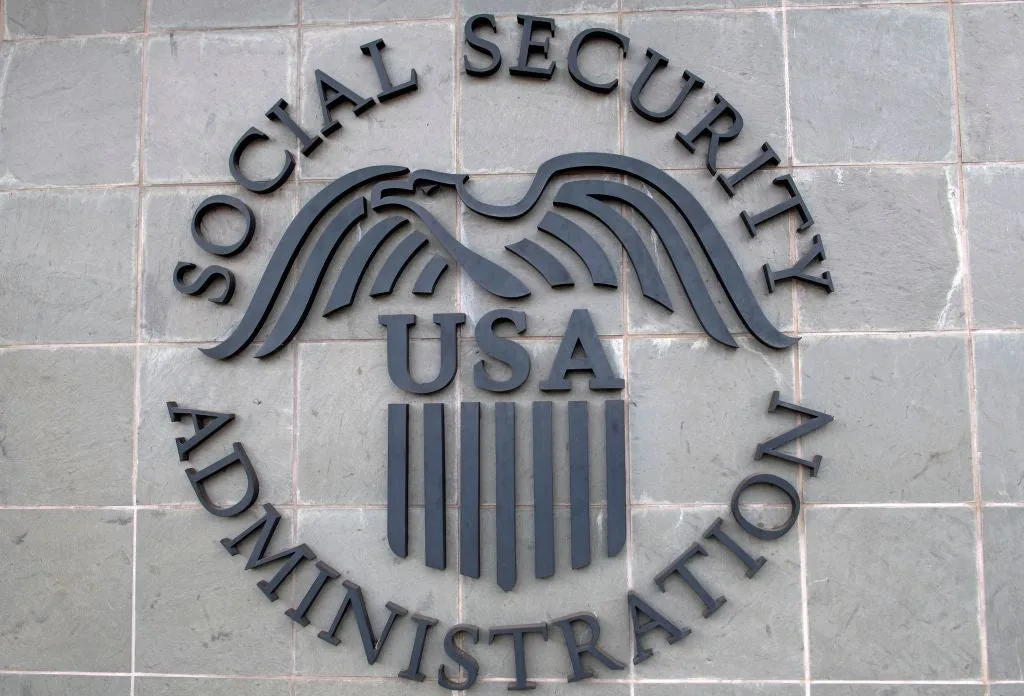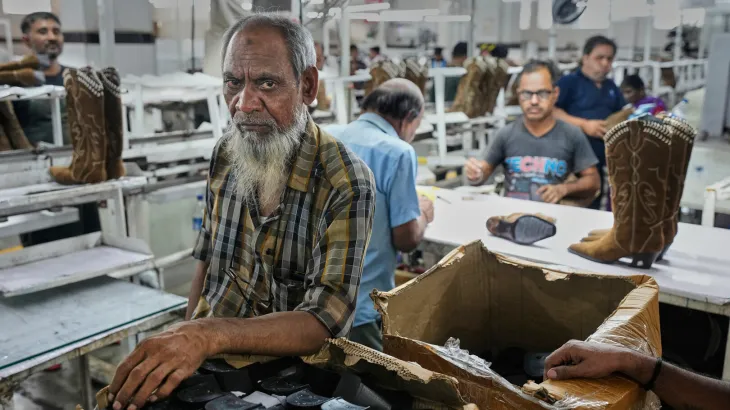The Social Security Administration (SSA), one of the most vital institutions serving millions of Americans, is once again facing internal turmoil. The sudden resignation of its Chief Data Officer (CDO) has raised serious concerns about transparency, accountability, and the culture within federal agencies. What makes this departure particularly significant is that it comes in the wake of a whistleblower complaint, suggesting that deeper systemic issues may be at play.
- The Resignation That Shook the SSA
- Understanding the Role of a Chief Data Officer
- Whistleblower Complaints: A Critical Safeguard
- The Larger Context: Data Challenges in Federal Agencies
- A Story of Resistance and Reform
- Why This Matters for Everyday Americans
- Expert Reactions and Analysis
- Lessons from Past Whistleblower Cases
- What Happens Next?
- Broader Implications for Public Trust
- FAQs
- Why did the Social Security Chief Data Officer resign?
- What is the role of a Chief Data Officer at the SSA?
- How does this resignation affect Social Security beneficiaries?
- What happens to a whistleblower complaint in federal agencies?
- Could this resignation lead to congressional hearings?
- Why does this matter for public trust?
- Conclusion
This article takes a deep dive into what happened, why the resignation matters, and what it could mean for the future of Social Security oversight. We will explore the role of data governance at the SSA, the significance of whistleblower protections, and the larger implications for the millions of Americans who rely on the agency’s services every day.
The Resignation That Shook the SSA
When a top official like the Chief Data Officer resigns, it does not go unnoticed. Data officers play a crucial role in ensuring that the agency manages, protects, and utilizes its vast amounts of data responsibly. The SSA, after all, processes sensitive personal information for over 70 million beneficiaries, ranging from retirement checks to disability support.
The resignation became a lightning rod for controversy because it was closely tied to a whistleblower complaint. According to insiders, the CDO alleged mismanagement, a lack of compliance with data protection standards, and internal resistance to reforms. While the SSA has not publicly disclosed the full details, multiple reports suggest the whistleblower’s claims highlighted systemic vulnerabilities in data governance and transparency.
Understanding the Role of a Chief Data Officer
To understand the gravity of this resignation, one must grasp what a Chief Data Officer does. In the federal government, CDOs are tasked with overseeing how agencies collect, manage, and safeguard information. This includes ensuring compliance with privacy laws, maintaining cybersecurity standards, and making data available for public accountability and policy-making.
At the SSA, this role is even more critical. With a budget of over $1 trillion in benefits annually and sensitive records on nearly every working American, the stakes for secure and ethical data management could not be higher. If the CDO feels compelled to resign due to alleged misconduct or non-compliance, it signals a breakdown in internal safeguards.
Whistleblower Complaints: A Critical Safeguard
The whistleblower complaint linked to the CDO’s resignation underscores the importance of federal whistleblower protections. These safeguards allow government employees to raise concerns about misconduct, fraud, abuse, or threats to public safety without fear of retaliation.
History has shown how whistleblowers play a vital role in keeping federal agencies accountable. From exposing wasteful spending to uncovering systemic failures, whistleblowers act as a check against bureaucratic complacency. However, filing such complaints is never easy. Many employees risk professional isolation, career setbacks, and even harassment.
The fact that the SSA’s Chief Data Officer—someone at a senior executive level—resorted to filing a complaint suggests that internal avenues for addressing concerns may have been ineffective or hostile.
The Larger Context: Data Challenges in Federal Agencies
The resignation comes at a time when federal agencies are under increasing pressure to modernize their data systems. The SSA has long struggled with outdated technology, data silos, and inefficiencies that can impact beneficiaries directly. Delays in processing disability claims, inconsistent record-keeping, and cybersecurity vulnerabilities are just some of the issues that have been highlighted in recent years.
Experts warn that failing to address these challenges undermines public trust. According to a Government Accountability Office (GAO) report, several federal agencies, including the SSA, face “high-risk” designations because of cybersecurity weaknesses and outdated IT systems. In this environment, the role of a Chief Data Officer is indispensable—making this resignation even more troubling.
A Story of Resistance and Reform
Behind the headlines, this story is also one of institutional resistance. Reports indicate that the CDO’s efforts to implement reforms—such as stricter compliance checks, enhanced data-sharing standards, and modernization efforts—met with internal pushback. Resistance to change is not uncommon in large bureaucracies, but when it involves an agency managing trillions of dollars in benefits and sensitive personal records, the stakes are too high to ignore.
The whistleblower complaint suggests that internal cultural issues, not just technical challenges, are hampering reform. If true, this paints a worrying picture of how difficult it is to modernize critical agencies that millions of Americans depend on.
Why This Matters for Everyday Americans
For the average American, this story might feel like just another Washington scandal. But the reality is that the SSA’s effectiveness impacts daily lives. Whether it’s a retiree depending on monthly checks, a disabled worker applying for benefits, or a survivor seeking support, the agency’s ability to securely manage data translates directly into quality of service.
A breakdown in data management can lead to delays, errors, or even fraud. With identity theft already a growing national crisis, any weakness in SSA systems could expose millions of Americans to serious risks.
Expert Reactions and Analysis
Experts in governance and data management have not been silent. A former federal CDO commented, “When a senior official resigns after filing a whistleblower complaint, it’s not just a personnel issue—it’s a governance crisis.”
Policy analysts argue that this resignation could trigger greater scrutiny from oversight bodies, including congressional committees. Lawmakers from both parties have previously expressed concerns about SSA’s management and accountability. The resignation may serve as a catalyst for renewed hearings, audits, and reform demands.
Lessons from Past Whistleblower Cases
This is not the first time a federal whistleblower has shaken a major agency. Past cases have shown that whistleblower complaints can lead to sweeping reforms, criminal investigations, or policy overhauls. For example, whistleblowers have previously exposed massive contracting fraud at the Department of Defense and mismanagement at the Department of Veterans Affairs.
The SSA now faces the challenge of proving it takes whistleblower concerns seriously. Mishandling this case could deepen mistrust and invite further scrutiny.
What Happens Next?
The immediate concern for the SSA is how it will fill the leadership void left by the CDO’s resignation. Equally important is how it responds to the whistleblower complaint. Agencies are required by law to investigate such complaints thoroughly, but the level of transparency varies.
If Congress decides to intervene, hearings could compel senior officials to testify about data practices, oversight failures, and the whistleblower’s claims. This could also lead to new legislation aimed at strengthening federal data governance and whistleblower protections.
For the SSA, the path forward involves not just appointing a new data officer but also addressing the systemic challenges that led to this crisis.
Broader Implications for Public Trust
At its core, this story is about public trust. Social Security is one of the most trusted and widely used programs in the country. Any perception of mismanagement or cover-up threatens that trust. Beneficiaries need assurance that their data is secure, their benefits are protected, and that the agency operates with transparency and accountability.
When senior officials are driven to file whistleblower complaints, it suggests the internal culture may be failing in these responsibilities. Rebuilding trust will require more than public statements—it will demand tangible reforms.
FAQs
Why did the Social Security Chief Data Officer resign?
The CDO resigned shortly after filing a whistleblower complaint, which reportedly raised concerns about data mismanagement, lack of compliance, and resistance to reform within the SSA.
What is the role of a Chief Data Officer at the SSA?
The CDO oversees the collection, management, and protection of sensitive beneficiary data. They ensure compliance with privacy and cybersecurity standards while promoting modernization and efficiency.
How does this resignation affect Social Security beneficiaries?
While the direct impact may not be immediate, weaknesses in data governance can lead to delays, errors, or even fraud. Beneficiaries depend on the SSA to handle sensitive personal and financial information securely.
What happens to a whistleblower complaint in federal agencies?
Whistleblower complaints must be investigated by law, often by an inspector general or other oversight body. Outcomes vary but can lead to reforms, audits, or congressional action.
Could this resignation lead to congressional hearings?
Yes. Lawmakers have previously scrutinized SSA management, and this high-profile resignation may trigger hearings or legislation aimed at strengthening oversight and data governance.
Why does this matter for public trust?
The SSA serves over 70 million Americans. Any perception of mismanagement, especially regarding sensitive data, undermines public confidence in the agency’s ability to deliver critical services securely and fairly.
Conclusion
The resignation of the Social Security Administration’s Chief Data Officer after filing a whistleblower complaint is more than a bureaucratic shake-up—it is a warning signal. It exposes the challenges of modernizing federal agencies, the resistance reformers face, and the fragility of public trust in institutions that millions rely upon.
At a time when cybersecurity threats are growing and federal agencies are under intense scrutiny, the SSA cannot afford to ignore the lessons from this episode. Whistleblowers are often the first line of defense against systemic failure, and their voices must be protected, not silenced.
How the SSA responds in the coming months will shape not just its internal culture but also the confidence of the American people in one of their most essential institutions.











